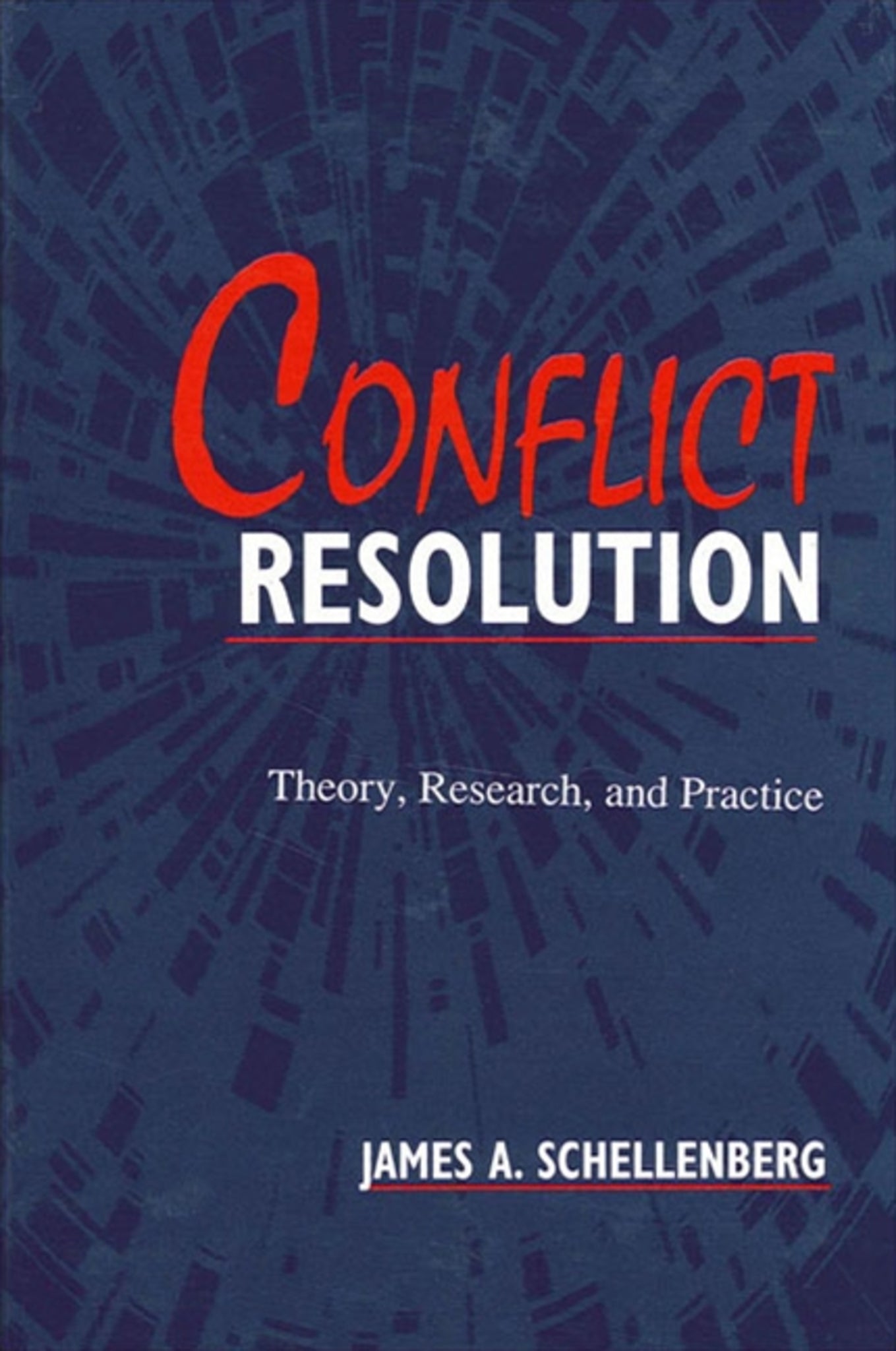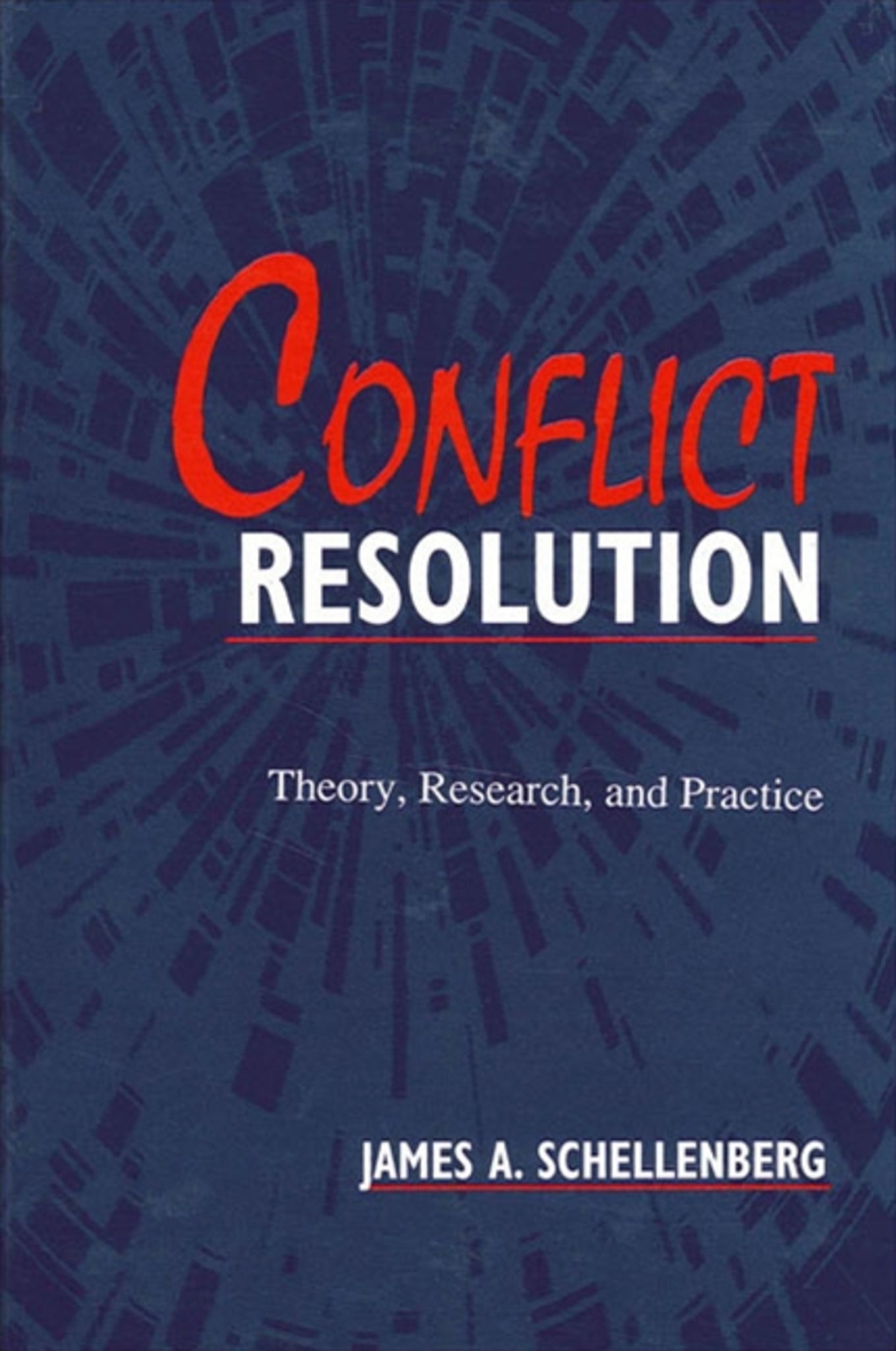We're sorry. An error has occurred
Please cancel or retry.
Conflict Resolution

Some error occured while loading the Quick View. Please close the Quick View and try reloading the page.
Couldn't load pickup availability
- Format:
-
26 September 1996

Reviews classic and contemporary theories of conflict, focusing on five main ways people try to resolve their conflicts—coercion, negotiation, adjudication, mediation, and arbitration.
Broadly defining "conflict resolution," James A. Schellenberg gives systematic coverage to five main ways people may try to resolve their conflicts: coercion, negotiation, adjudication, mediation, and arbitration. The main theories of conflict, both classic and contemporary, are reviewed under four main categories: individual characteristics theories, social process theories, social structural theories, and formal theories.


"The resolution of conflict in our society promises to become a major professional specialization as the democratization process continues to bring onto the stage of history the needs and interests of formerly suppressed groups. The need for first rate research and thought in this burgeoning area of specialization is great. Schellenberg brings the process of conflict resolution into a wide range of everyday realities so that the reader may become freshly cognizant of the many areas of social life to which the process is relevant and useful. This for many will be an awakening." — Seth Fisher, University of California, Santa Barbara
"This book is absolutely fascinating. There are many books on conflict resolution, but none, that I know of, take the author's omnibus review approach of formal theory, experiments, qualitative research, classical social theory, etc. The author manages to blend many varieties of theory and research into a seemingly seamless whole that genuinely illuminates an otherwise overwhelmingly large field of inquiry." — Stjepan Mestrovic, Texas A&M University
Preface
I. Introduction
Prologue: Out of the Garden
1. The Field of Conflict Studies
Past and Present
Basic Concepts
Distinctions Within Conflict Studies
Conflict Theory (and Theories)
Practice
The Plan of This Book
Summary and Conclusions
2. Conflict Resolution Research
Main Methodologies
Further Studies
Summary and Conclusions
II. Theory
3. Individual Characteristics Theories
Dr. Einstein Sends a Letter
Natural Selection and the Killer Instinct
Other Biological and Psychological Considerations
Theories of Social Learning
Summary and Conclusions
4. Social Process Theories
Mr. Smith Returns from France
The Wonderful World of Markets
Competition and Conflict
Interactionist Perspectives
Social Exchange Theory
Other Social Process Theories
Summary and Conclusions
5. Social Structural Theories
A Revolutionary Discovers the British Museum
The Dynamics of Class Conflict
After Marx
Before Marx
Other Structural Bases of Conflict
Solutions to Structural Conflict
Summary and Conclusions
6. Formal Theories
An Ambulance Driver Ponders the Rhythms of War
A Mathematical Formulation of Arms Races
The Mathematical Formulation of Interests
The Theory of Games
Summary and Conclusions
III. Practice
7. Coercion
Fighting over the Falklands
Can Force Really Resolve Things?
Beyond Brute Force
Summary and Conclusions
8. Negotiation and Bargaining
The General Motors Strike of 1970
Formal Negotiations and Bargaining
Negotiation Everywhere
Summary and Conclusions
9. Adjudication
Costs of Negligence
The American Judicial Process
The Law in Action
Summary and Conclusions
10. Mediation
Agreement at Camp David
The Nature of Mediation
The Success of Mediation
Summary and Conclusions
11. Arbitration
Three Cases
The Nature of Arbitration
The Arbitration Process
Some Variations
Decisions in Three Cases
Summary and Conclusions
12. Many Roads to Resolution
The Spink County War
Forms of Resolution
Many Roads
Intractable Conflicts
Summary and Conclusions
Epilogue: A Debate
Notes
Bibliography
Index



